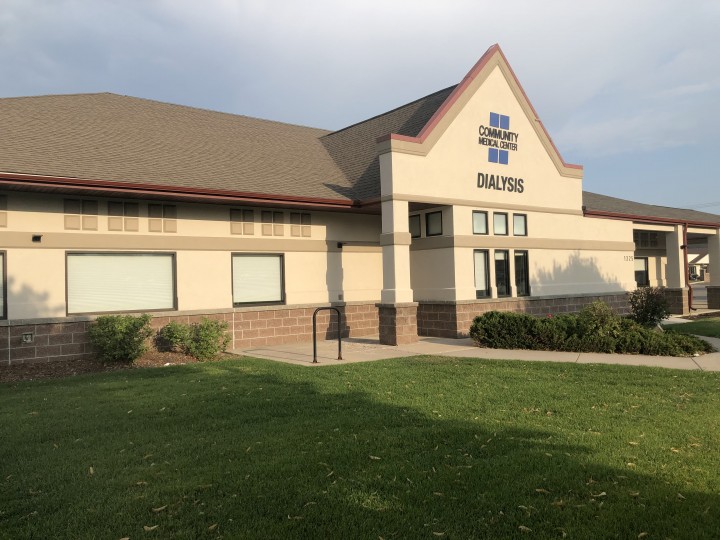Dialysis
Get Directions
Missoula, MT 59804
Hours
Outpatient Dialysis
Mon. - Sun. (Open 7-days a week)
6 am – 5:30 pm
Emergency & Hospital-based Dialysis
24/7 EastAdmit Transfer Center
(406) 327-4726

About
The kidneys are responsible for removing waste substances and fluid from the blood. If you have kidney failure, your kidneys can no longer perform their function. Dialysis takes over the job of your kidneys, removing waste and fluid. We may also use dialysis if you have been exposed to or ingested toxic substances, in order to prevent renal failure from occurring.
- Emergency & Hospital-Based Dialysis
- Outpatient Dialysis
- In-Center Hemodialysis
- Peritoneal Dialysis
Next Steps
Outpatient Dialysis
In partnership with DCI, Community Medical Center offers a 10 station facility that provides in-center hemodialysis, home hemodialysis and peritoneal home training to patients in the Missoula and surrounding communities.
Refer a Patient
If you are a medical provider, who would like to consult with a medical specialist or to transfer a patient, call our 24/7 EasyAdmit Transfer Center.
Meet Our Medical Providers
Emergency & Hospital-Based Dialysis
When dialysis patients are hospitalized for any reason, or when a hospitalized patient experiences acute kidney injury or acute renal failure and must immediately transition to dialysis, our nephrologist provides consultations to ensure that life-sustaining dialysis can proceed.
Outpatient Dialysis
Community Medical Center Dialysis was established as a part of an ongoing relationship between Community Medical Center and DCI (Dialysis Clinic, Inc). Our clinic is a 10 station facility that provides in-center hemodialysis, home hemodialysis and peritoneal home training to patients in the Missoula and surrounding communities. The clinic also provides additional comforts for patients such as heated chairs and personal televisions.
Treatments
In-Center Hemodialysis
In-center hemodialysis is performed at a dialysis facility. Hemodialysis treatments are scheduled three times a week. The length of the treatment is prescribed by a physician and generally lasts 4 hours. To start treatment, specially trained nurses and dialysis technicians insert two needles, connected to dialysis tubing, into a person’s access (usually in the arm) to circulate the blood out of the body, through the tubing, into the dialysis machine to remove the excess fluid and waste, and then back into the person’s body. Nurses and technicians are always there watching and monitoring the treatment.
Peritoneal Dialysis
Peritoneal dialysis, or PD, is a daily treatment. PD is a procedure that removes wastes, chemicals and extra fluid from your body. This type of dialysis uses the peritoneal membrane, the thin, natural lining of your abdomen, to filter your blood. The peritoneal membrane acts as the artificial kidney. Although it is there to protect your organs, it has many tiny holes, or pores, in it that can be used to filter waste products and other chemicals from your blood. To prepare for PD, a surgeon places a permanent tube called a catheter into the lower abdomen to carry solution in and out of the abdomen. The sugar in the solution, called dextrose, draws wastes, chemicals and extra fluid from your blood through the peritoneal membrane and into the dialysate solution that is in your abdomen. After several hours, the used solution is drained from your abdomen through the catheter and into an empty bag. Your abdomen is then refilled with fresh dialysate and the cycle is repeated. Each cycle of draining used dialysate and refilling with fresh dialysate is called an exchange. There are two common types of PD: Continuous Ambulatory Peritoneal Dialysis (CAPD) and Continuous Cycling Peritoneal Dialysis (CCPD).

